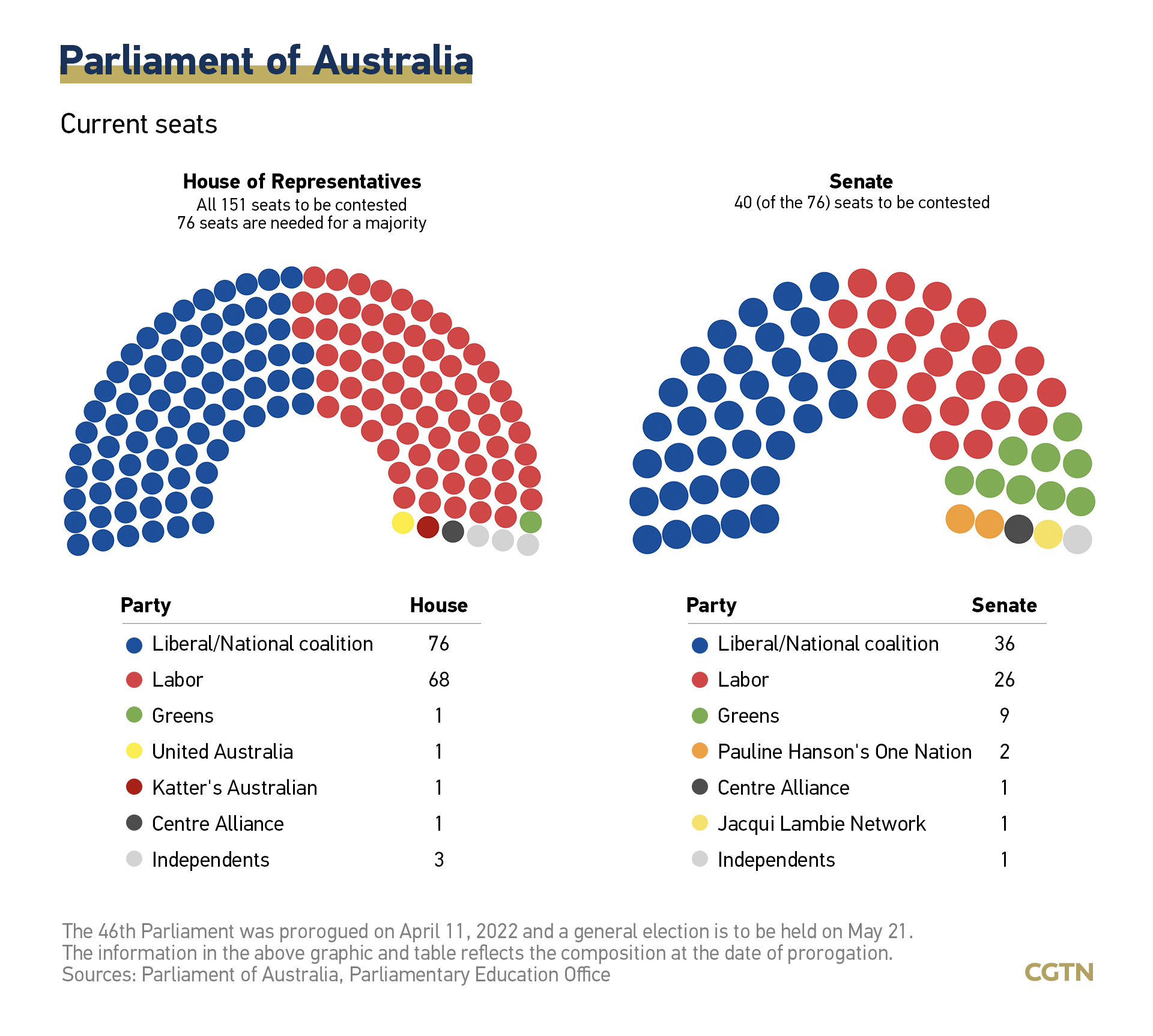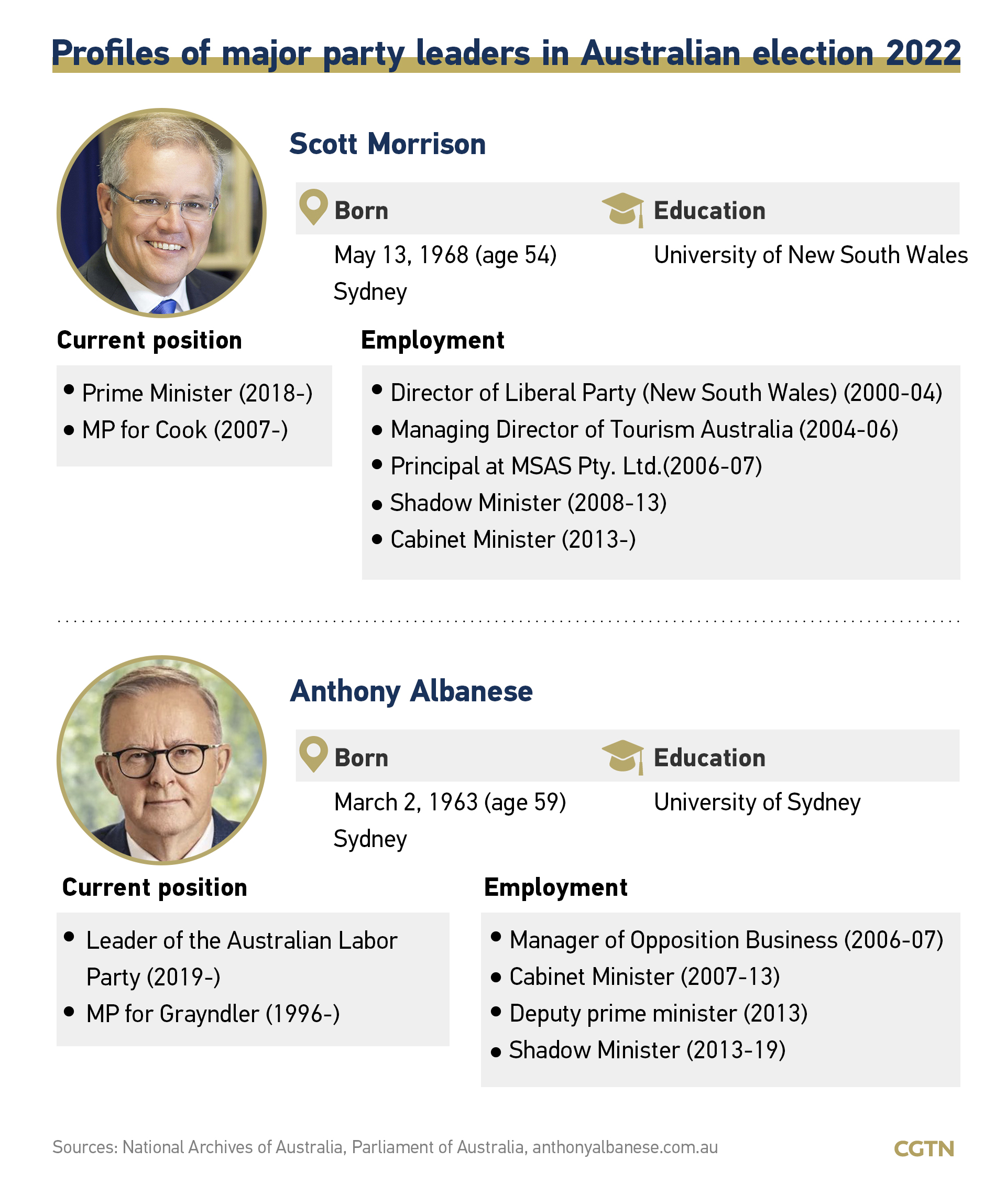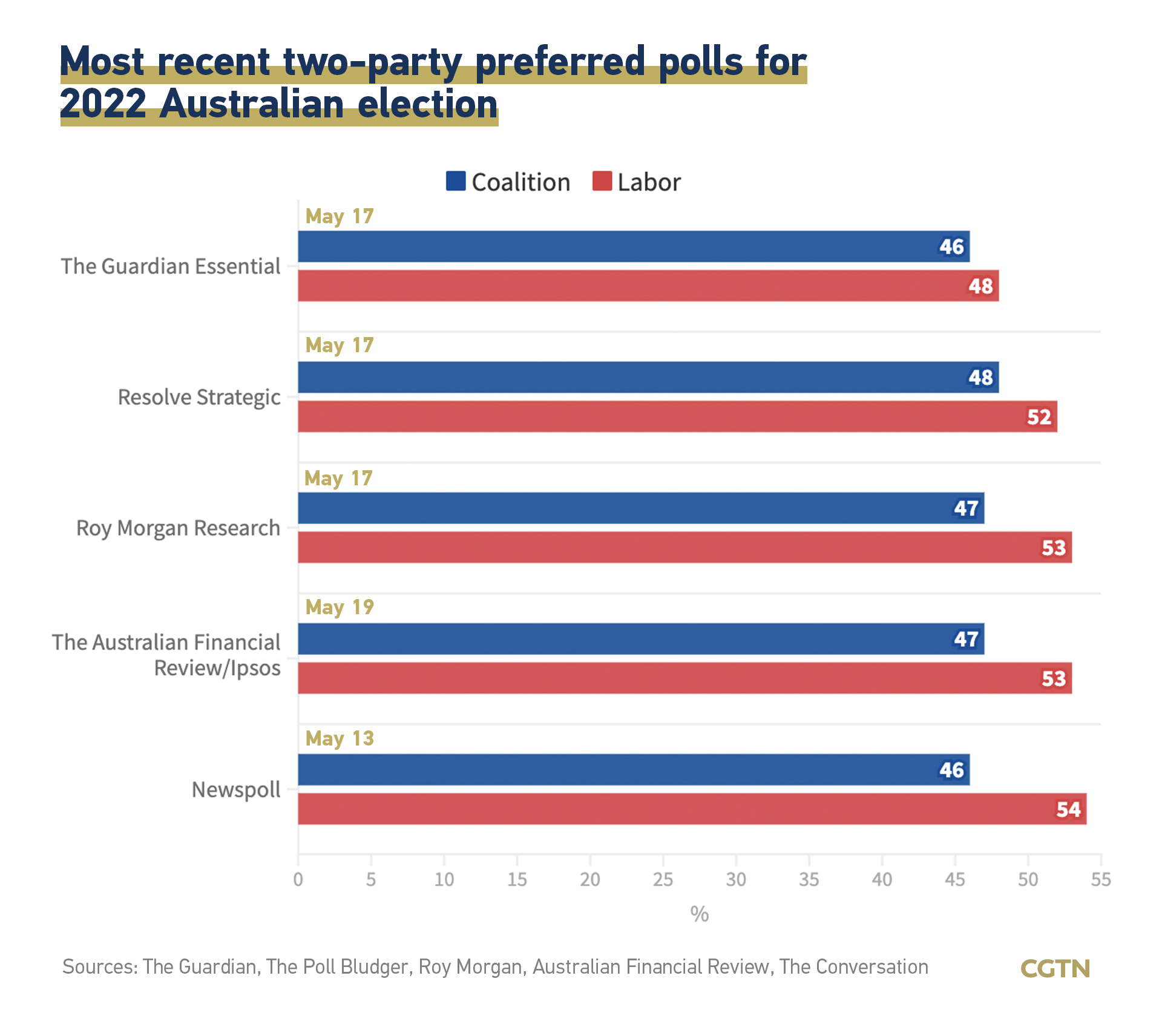Australians are set to decide who forms the government on Saturday.
Nearly six million voters out of an electorate of 17 million have already cast their ballots through postal votes or early in-person voting, official data showed.
Voting in elections is compulsory for everyone over the age of 18. Pre-voting is available due to concerns around coronavirus.
How to decide if a party wins?
The current government is a right-wing coalition between the incumbent Prime Minister Scott Morrison's Liberals and the National Party. The center-left Labor Party led by Anthony Albanese is in opposition. The other major parties are the Australian Greens, United Australia and One Nation.
The Australian Parliament is made up of two houses. The lower is the House of Representatives and the upper is the Senate.

There are 151 members of the House of Representatives. At every election, all 151 seats are contested, and the party or coalition holding a majority in the House will form a government.
The Senate operates on a different system, whereby only half of its 76 seats come up for election every three years. On Saturday, 40 seats in the Senate are up for grabs.
Who is in the running to be prime minister?
The leader of the majority party or coalition in the House becomes the prime minister.
Morrison, hoping for a rare fourth term, is being challenged by Labor leader Albanese in the final vote.

A former Australian tourism boss, Morrison took office in 2018.
He has been in politics since 2007 when he became MP for Cook in the south of the country.
In the top job he has continued to take a hard stance on immigration, facing criticism for reports of inhumane and degrading treatment at detention centers.
The prime minister also faced criticism for going on holiday to Hawaii while Australia experienced its worst bushfire season.
A veteran MP of 25 years, Albanese was elected to Parliament in 1996.
Albanese blamed government mismanagement for the slow rise in wages and inflation shock.
Labor is emerging as the party most trusted to manage the cost of living pressures facing Australians.
Rising living costs have dominated the final stretches of the campaign with voters rating it as the most critical issue in some polls.
Polls: Labor remains in lead but race tightens
The polls are collectively putting Labor ahead on a two-party preferred measure, but as the campaign enters its final days the contest has tightened in Morrison's favor.

Scarred by bold predictions of victory at the 2019 poll, pollsters have since adjusted their methodologies.
But nothing is sure until election night.
While the major parties are struggling to win the support of voters, the Guardian Essential poll has also found a large drop in the number of people who feel that "Australia is heading in the right direction." Just under half of respondents (41 percent) say Australia is heading in the right direction, while 43 percent of people say the country is on the "wrong track."
Rhetoric on China
Both parties have been seen to be equally tough on China.
Morrison has been one of the world's most outspoken leaders in pushing back against China, while Labor has sought to blunt any advantage for Morrison by adopting a similar China policy – only with softer language aimed at appealing to the ethnic Chinese citizens who make up more than five percent of the population.
Polling conducted by the Lowy Institute found that support for the government among Australians of Chinese heritage dropped 14 percentage points last year to 28 percent.
The government's anti-China rhetoric was considered to be fueling anti-Asian hate.
A survey by the same institute in April showed that one in three Chinese Australians had suffered discrimination due to their heritage.
Almost 20 percent of those polled said they had been physically threatened or attacked because of their heritage while one in four had been called offensive names.
Interesting tradition on election day
Where to find the elusive democracy sausage is the second-biggest decision to make for Australians on election day.
In Australia, sausages have become a symbol of election day.
Morrison actually served sausage sizzles to some journalists and his own staff on the eve of the election day.

